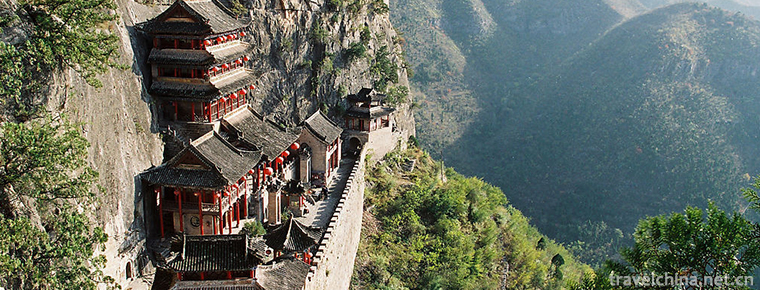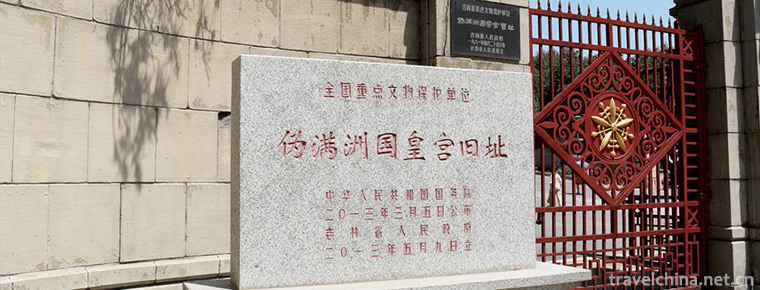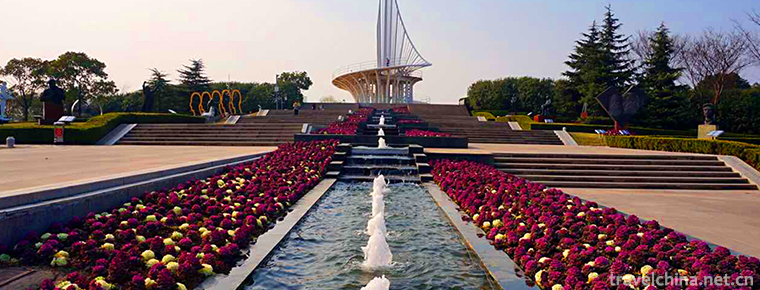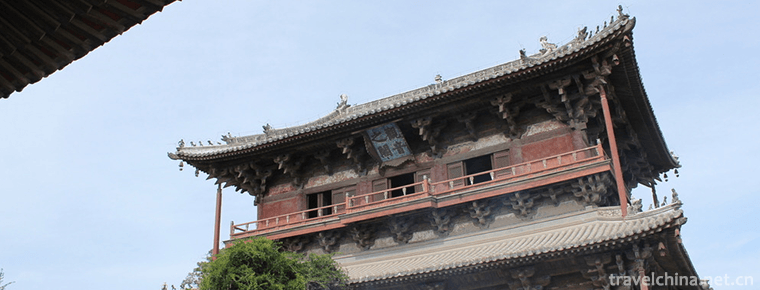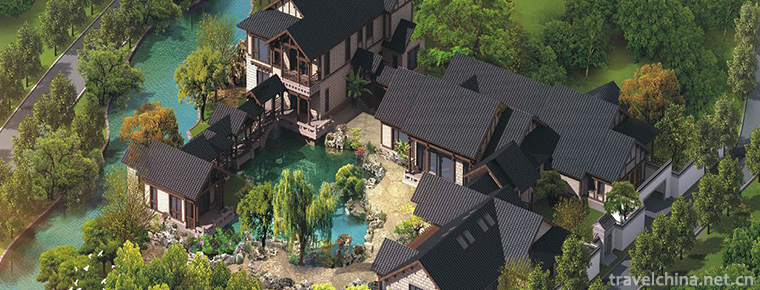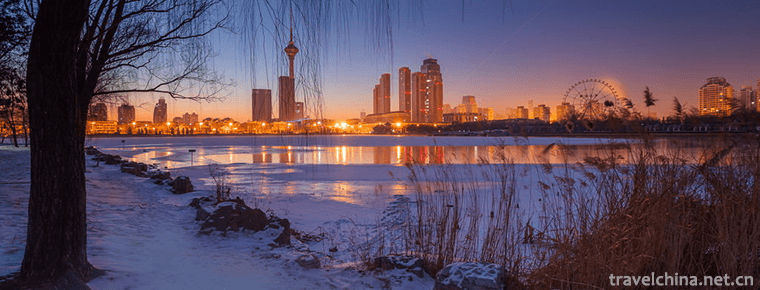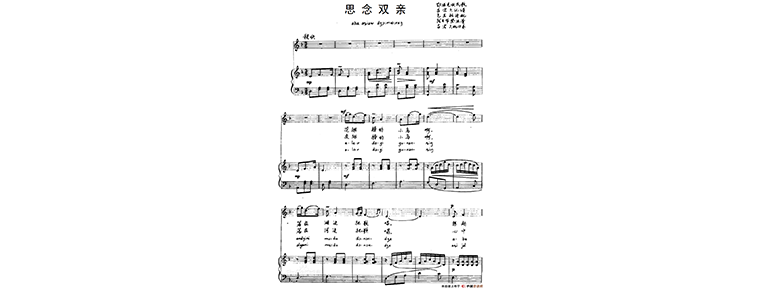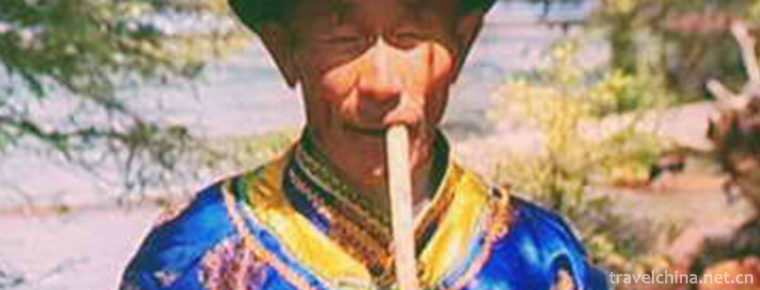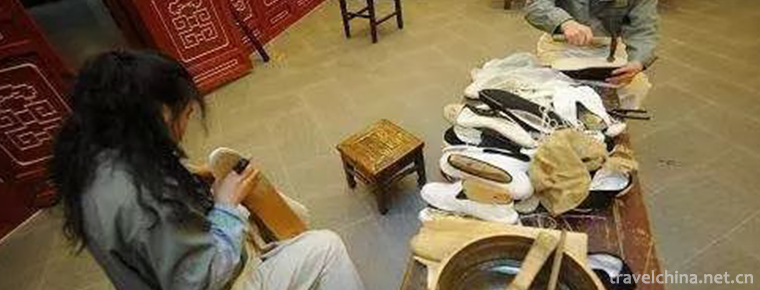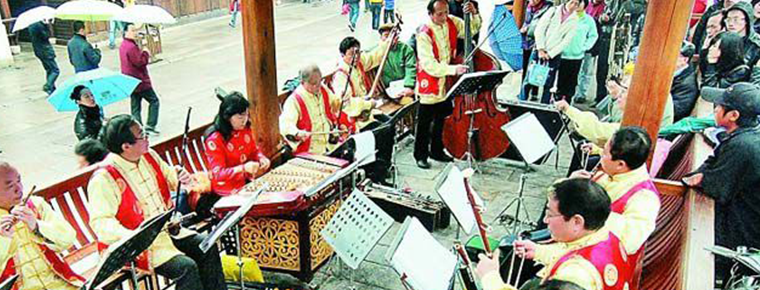Huangmei Opera
Huangmei Opera
Huangmei Opera, formerly known as Huangmei Diao and Tea Picking Opera, originated from Huangmei Opera in Hubei Province and grew stronger than Anqing Opera in Anhui Province.
Huangmei Opera, together with Peking Opera, Vietnam Opera, Commentary Opera and Henan Opera, is also the main local opera in Anhui Province. There are also professional or amateur performing groups of Huangmei Opera in Hubei, Jiangxi, Fujian, Zhejiang, Jiangsu, Hong Kong and Taiwan, which are widely welcomed .
Huangmei Opera is characterized by simple and smooth singing, lively lyricism, rich expressive force, and simple and meticulous performance, which is famous for its real and lively performance. A song "Tianxian Pair" made Huangmei Opera popular in the north and south of the Yangtze River, and also had a high reputation abroad .
On May 20, 2006, Huangmei Opera was approved by the State Council and listed in the first batch of national intangible cultural heritage list.
origin
The origin of Huangmei Opera can be traced back to Tang Dynasty. According to historical records, Huangmei Tea Picking Song was very popular earlier than Tang Dynasty. Folk opera embryonic form was gradually formed through the development of Song Dynasty folk songs and the influence of Yuan Dynasty zaju. By the Ming and Qing Dynasties, the opera style in Huangmei County was more prosperous .
The predecessor of Huangmei Opera is tea-picking tune, fruit-picking tune and Huangmei tune, later known as Huangmei Opera. Originated in the Doyun Mountains of Huangmei County and along the Taibai Lake, the Qiaoge Diaoqiang tea-picking tune was formed in the Qingdaoguang period and spread in the vast areas around Hubei, Anhui, Jiangxi and Jiangsu provinces in the middle and lower reaches of the Yangtze River. Xing Xiuniang, Yu Haixian and a number of other ancestor artists have made outstanding contributions to the formation, development and dissemination of Huangmei Opera .
Huangmei County is located on the North Bank of the Yangtze River. In the old days, most of the terrain was lower than the riverbank. There is the saying that people live in mooring on the riverbank. Natural disasters are frequent and floods are more prominent. Frequent disasters have forced Huangmei people to learn to sing Huangmei Opera in succession to meet the needs of escaping water shortage, beating a couple of compartments, singing and begging for survival in other places. This has greatly promoted the development of Huangmei Opera from mountainous areas to Jianghu Plain areas and radiation to the adjacent areas of Hubei, Jiangxi and Anhui . From the late Qianlong period of the Qing Dynasty to the early stage of the development of Huangmei Opera around the 1911 Revolution. Huangmei Opera, originally known as "Huangmei Diao" or "Tea Picking Opera", was a folk opera formed in the late eighteenth century in the adjacent areas of Anhui, Hubei and Jiangxi provinces. One of them gradually moved eastward to Anqing, which is centered on Huaining County, Anhui Province. It is called "Huaiqiang" or "Huaiqiao". This is the predecessor of Huangmei Opera today. Huangmei Opera has experienced four historical stages from its origin to its development: monologue, three small plays, three dozens and seven singing, and orchestral accompaniment. The first three stages were completed in Huangmei, Hubei Province, which provided sufficient preconditions for the final formation of Huangmei Opera.
Huangmei Opera originated from Huangmei and developed in Anhui Province. Especially in the 1950s, Huangmei Opera Troupe of Anhui Province adapted the traditional Huangmei opera Dong Yong Selling himself into Tianxian Pair. Huangmei Opera is well-known both at home and abroad and has become one of the "five major operas" in China. In 1920, Susong County Chronicle of Anhui recorded that "in the southwest of Yijie, it borders on Huangmei, which is also called Huangmei Opera." The entry of Huangmei Opera in Dictionary of Chinese Traditional Opera and Opera Art is: "Huangmei Opera, Opera Type". The old name is Huangmei Diao. It is popular in Anhui and parts of Jiangxi and Hubei, and originates from the tea-picking songs in Huangmei area of Hubei Province. In 1959, the preface to Anhui Opera Collection, compiled by Anhui Cultural Bureau and published by Anhui People's Publishing House, wrote: "Huangmei Opera originated from the tea-picking songs in Huangmei County, Hubei Province, and flowed into Anqing after Qingdaoguang." Zhou Yibai, a historian and theorist of Chinese opera, said in the Outline of the Development of the History of Chinese Opera: "Huangmei Opera originated from the tea-picking Opera in Huangmei County, Hubei Province."
In 1958, Mao Zedong, Liu Shaoqi, Zhou Enlai, Zhu De and other party and state leaders watched Huangmei Opera "Crossing the Border Ridge" performed by Huangmei Drama Troupe in Hongshan Auditorium of Wuhan. After watching the drama, Chairman Mao said in question, "How did your Huangmei Opera in Hubei run to Anhui?" After Mei Bai, then deputy secretary-general of the Hubei Provincial Party Committee, reported to Chairman Mao about the situation, Chairman Mao suddenly realized that he said, "Your Huangmei Opera was rushed to Anhui by the flood." Chairman Mao also praised him and said, "You Huangmei people are still good at performing their own local operas. The local flavor is very deep and touching. I also became Huangmei people."
In February 1995, Huangmei County was named the "Town of Huangmei Opera" by the Hubei Provincial Department of Culture. In August 1995, it was awarded the title of "Town of Huangmei Opera" by the Ministry of Culture. In January 2019, Huangmei County was selected as the "Town of Chinese Folk Culture and Art" by Huangmei Opera.
Development history
Development History
The development history of Huangmei Opera can be roughly divided into three stages:
The first stage was from the late Qianlong period of the Qing Dynasty to around the 1911 Revolution. The Huangmei tea-picking tune, Jiangxi tune, Tongcheng tune and Fengyang song, which came into being and spread among the provinces of Anhui, Hubei and Jiangxi, were influenced by the performance of local operas (Qingyang tune and Hui tune), combined with folk arts such as Lianxiang, stilts and dry boats, and gradually formed some small plays. Further development, it absorbed the content and form of performance from a form of opera called "Luohan Pile" and Qingyang Tune and Hui Diao, thus producing a complete story of the play. There is also a transitional form from the minor opera to the present one, which is called "string opera" by the old artists. The so-called "string play" is a group of small plays which are independent and interrelated, some of them "string" with events, and some of them "string" with people. The plot of "string play" is more abundant than that of small play, and the characters appearing also break through the three small areas of clown, Xiaodan and Xiaosheng. Some of the older people need to be honest, old and ugly. This has created conditions for the production of this play . From Kangxi, Qianlong to Guangxu in Qing Dynasty, it was an important historical stage for the formation and development of "three dozens and seven singing". In this stage, the accumulation of traditional operas, singing, performing arts and the wide spread of operas were comprehensively practiced. During this period, traditional operas were very rich. There were more than 200 operas and minor operas that artists could perform, commonly known as "Thirty-six big books and seventy-two minor operas". Among them, many are based on the real events of Huangmei, such as "Gong Jing Cheng", "Da Da Fei", "Da Cidian", "Crossing the Border Ridge" and so on. In terms of repertoire, it is known as "thirty-six major plays and seventy-two minor plays". The main performance of the drama is the people's dissatisfaction with class oppression, the disparity between rich and poor and their yearning for a better life of freedom. For example, "Buckwheat Records", "Food Officer", "Tianxian Pair" and so on. Xiaoju mostly shows the life segments of rural laborers, such as "Point Barley", "Spinning Cotton Yarn", "Selling Dou Zhu" .
The second stage is from the 1911 Revolution to 1949. At this stage, Huangmei Opera performance gradually became professional and stepped onto the urban stage from the rural grass-roots stage. After entering the city, Huangmei Opera worked with Peking Opera, and was influenced by Vietnamese Opera, Yangju Opera, Huaiju Opera and the opera critics from the North (sometimes called "skipping opera") in Shanghai. The content and form of performances changed greatly. A number of new plays have been compiled and transplanted, including the Liantai opera Wen Suchen, Hongbi Yuan, Luxurious Yuan and The Story of Bees. In the aspect of music, the initial reform of traditional singing has been carried out, which reduces the empty words in the old tune, makes it lively and smooth, and makes it easy for the audience to understand the content of the singing. The Bang tune was cancelled and the accompaniment of the huqin was tried out. In the aspect of performance, it absorbs and melts the formulaic movements of Peking Opera and other brotherly operas, and enriches the means of expression. Others, such as clothing, makeup and stage settings, are also more developed than those in rural grasslands.
The third stage is from 1949 to the present. After the founding of the People's Republic of China, Huangmei Opera has been rapidly restored and developed. Huangmei Drama Troupe of Anhui Province was founded in Hefei in 1953. Thirteen counties in Anqing also set up professional theatre troupes. In 1954, Huangmei Opera "Tianxianpi" participated in the East China Opera Performance Conference, which was successful. The play was also twice filmed and made a sensation at home and abroad. A number of new and adapted excellent dramas such as "Female Horse", "Sand Hill", "Fire Ziyun Pavilion" have been staged one after another. During this period, Huangmei Opera also affected many other provinces and regions, such as Hubei, Jiangxi, Jiangsu, Fujian, Zhejiang, Jilin, Tibet and other provinces and regions have also established Huangmei Opera Troupe. In Hong Kong and Macao, Huangmei Opera was also performed in Putonghua and Cantonese. In the performing arts, through the rehearsal of new plays and film shooting, it absorbed the performance forms of drama and film, and made new development in the characterization and other aspects. In the decades since liberation, Huangmei Opera has produced a large number of outstanding actors. In addition to Yan Fengying and Wang Shaofeng, who have made outstanding contributions to the singing art of Huangmei Opera, young and middle-aged actors such as Malan and Han Zaifen have shown their excellent performing skills on the stage, on the screen and on the TV screen, and won the attention and love of the audience.
Stage division
Throughout the performance activities of Huangmei Opera, from redundancy to professionalism, it can be roughly divided into four stages :
Budding stage
Only performers, no performing groups. During this period, Huangmei Opera was performed and sung at temple fairs or New Year's festivals in the form of folk songs and dances such as folk songs and tea songs. They were led by one person and linked the volunteers together. In their spare time, they freely combined and sang. After that, they dispersed and sang separately. Next time, they sang again and recombined. And this combination, and the last personnel, is not necessarily the same. This kind of performance and singing is purely the nature of self-entertainment and enjoyment with others. It is not a means of earning a living by taking it as a profession. Therefore, the early Huangmei Opera has not yet formed a real performing group.
Early stage
When Huangmei Opera, a relatively fixed, sparsely staffed, amateur or semi-professional class, develops from the singing of folk songs, tea songs, tea lanterns and wind-yang flower-drum tunes to two or three small plays with simple story plots, the singers can not sing at will as before. Because it is a performance, there must be rehearsal, clothing, props and other drama procedures and requirements, spare time is not enough, in addition, this performance may become the performer's profession or semi-profession, they will naturally combine into a group. This led to the relatively fixed Huangmei Opera troupe in its early stage, which is now called the performing troupe.
During this period, some of the teams were short-term, some seasonal, and basically amateur or semi-professional. Most of them have no fixed class location, loose internal structure, incomplete organizational structure, no strict discipline restriction, free access to personnel, because the content of the performance is not big, the characters in the play are not many, but three or two small plays (Xiaosheng, Xiaodan) and three small plays (Xiaosheng, Xiaodan, clown), so the staff of the team is very small, seven or eight people can, so-called "seven busy eight not busy", this is Huangmei. A popular saying in the theatre troupe is that if there are seven people in the troupe, they will be busy, and if there are eight people, they will not be busy. Therefore, in the middle stage of Huangmei Opera, there are some relatively fixed performance groups with few personnel, but amateur or semi-professional.
Later stage
Class clubs developed rapidly, stepped onto the regular, fixed, increased repertoire and became well-known. From the rural areas to the urban Huangmei Opera in the late Qing Dynasty and the early Republic of China, they absorbed all kinds of operas and developed into more complete and mature ones. In addition to performing two and three minor operas, it has absorbed the major plays of Qingyang Opera and Chu Opera. Performing a big play requires that the class club should be relatively stable and have the ability to perform a big play. Therefore, during this period, there have been fixed professional class clubs. For the sake of livelihood, business and income, the performances should be renovated regularly, the performances should have certain quality, the number of personnel increased, and the business of stage art (suitcase, curtain, props, knife and gun handle) has also developed. The team is not so loose. In terms of organization and management, there are class masters, as well as full-time personnel who are in contact with performance and management life. The mobility has also increased (i.e., the so-called "running wharf"). This kind of professional performance group has appeared in Xianfeng in the Qing Dynasty. For example, in the seventh year of Xianfeng (1857), Duolong A and Bao Chao of the Qing Army once gathered in Susong Silence on the winter solstice day to "perform flower-drum opera for the theatre building and invite the captains of each battalion to gather with all the literary officials". (Susong County Chronicle) The Huagu Opera here is Huangmei Opera.
This description illustrates two problems. First, the Huangmei Opera that Dorong A and Bao Chao watched may be a fixed professional class with a good lineup and certain performance quality. 2. The class club has entered the theatre. Unfortunately, this account does not record the name of the class club and other activities, so some people say that he may also be a non-professional team. However, after the Guangxu period, the professional Bandu of Huangmei Opera appeared in large numbers in Western Anhui, including Yuexi, Susong, Qianshan, Taihu Lake and Huaining. Guangxu 21 years (1895), Tongcheng bricklayer Peng Honghua, known as Peng Xiaolao, organized Huangmei Opera troupe to perform in the countryside of Huaining, known as "Peng Xiaolao troupe". Around 30 years of Guangxu (1904), Wang Hongyuan was promoted to the same level in Yuexi Group.
From the 1920s to the 1930s, Huangmei Opera Professional Club developed more frequently. Apart from Zhide (now east to county), Qingyang, Guichi, Tongling and Huizhou, Huangmei Opera Club was established in the north of the Yangtze River, west of Anhui Province and south of the Yangtze River. In the fifteen years of the Republic of China (1926), Zhang Tinghan set up "Zhang Hanban" (also known as "good friend class") in Yuexi. In the 16th year of the Republic of China (1927), the Pearl of Sandalwood set up "Tongyuetang" in Dongzhi, also known as "Huaizhu Class" and "Sandalwood Class". In 1938, Wang Zilin set up an "anti-construction class" in Susong, also known as "Wang Zilin class". During the period of the Anti-Japanese War, this group performed in the rear of the Anti-Japanese War to publicize the anti-Japanese war and save the nation from extinction. In the thirty-fifth year of the Republic of China (1946), Gui Chunbai and Gui Yue E set up the Chun Yuetang Class in Tongling. After the victory of the War of Resistance Against Japanese Aggression, the rivers from north to South gathered here and there, gathered and scattered, scattered and gathered, and more active. In 1932, Ding Yongquan, together with his artists, led his team into Anqing, ending the history of Huangmei Opera performing only in the countryside. Since then, other classes have followed suit and performed in cities and counties of Anhui. Generally speaking, the later Huangmei Opera performing groups are more regular and fixed, with more performances, more complete lines of work, more popular areas and more rural areas to urban areas.
Recent stage
From the professional theatre group Huangmei Opera, which was transformed into a government-managed one, entered the city in 1932, to the liberation of the whole country. During more than 20 years, Huangmei Opera's activities were held in every county around Anqing, the capital of Anhui Province at that time, and in Tongling, Qingyang, Guichi and other counties and towns in the south of the Yangtze River. In 1949, after the founding of the People's Republic of China, the cultural administration departments of the People's Government reorganized artists through organizational learning and training, and put them under the leadership of the government, so that they could learn and perform better. For example, in Anqing, with Ding Laolou (Ding Yongquan) and his sons Ding Zicheng, daughter Ding Cuixia, as well as Pan Zehai and his daughter Pan Wang Jingyu, and later Wang Shaoquan's brothers and sisters transferred from Beijing Band, a "people's theatre" was set up. Shortly afterwards, Yan Fengying returned to Anqing and participated in the "Group Music Theatre" (later changed to "Victory Theatre" and moved to the new site of Qian Pailou). Another example is the "Class One, Two and Three" organized by Guichunbai and Guiyue E, which was changed by the government to "Tongling New Folk Opera Troupe" in Tongling. Around this time, the counties under the jurisdiction of Anqing and the counties in the south of the Yangtze River will form a professional Huangmei Theatre Troupe with mobile professional classes and sporadic artists. For example, Hu Yuting, an artist from Wangjiang County, and Li Guilan, an artist from Huaining, moved from Jiangbei to Zhide, where they were formed into a "Zhide Popular Opera Troupe". Tongcheng County's cultural department will Huangmei Opera artist Chen Guorong and others, and some amateur singing activists Yan Yunlin and others, to form the "Tongcheng People's Opera Troupe". Wangjiang County is a semi-professional "pavilion theatre troupe" and amateur backbone activities to form "Wangjiang mobile theatre club". Such a recovery and reconstruction of performance groups, so that the original liquidity of the "running wharf" situation, are relatively stable, basically within the scope of a county activities and performances, and there are more fixed theatres. The performance conditions have been greatly improved, leaving the "grass terrace" and "beach". Most importantly, with the leadership and support of the government and self-management, there is also a certain guarantee of economic income.
In 1952, Huangmei Opera artists in Anqing performed in Shanghai with such dramas as "Striking Pig Grass" and "Blue Bridge Club" and received wide acclaim. Since then, Huangmei Opera has gradually grown from local operas in Anqing to national operas, and is well-known in foreign countries. In 1955, director Shi Hui, Yan Fengying and Wang Shaofeng co-starred in Tianxianpi, which caused a sensation at home and abroad, so that a large number of so-called "Huangmei Diao" films appeared in Hong Kong and Taiwan film circles during a period of time. Among them, the production of Hong Kong Shaw Brothers (Hong Kong) Co., Ltd. is a typical example. Director Li Hanxiang led a number of "Huangmei Diao" films at that time. His representative works include: Mink Cicada, Jiangshan Beauty, Fenghuanjiao, Yang Naiwu and Cabbage, Yutangchun, etc. These "Huangmei Diao" movies also played a great role in promoting the spread of Huangmei Opera in Hong Kong, Taiwan and overseas. Until the 21st century, Hong Kong and Taiwan movies still occasionally interspersed with Huangmei opera (or with Huangmei opera style) arias, such as Wong Fei, Liang Chaowei starring in "No Match in the World" and so on.
Huangmei Theatre Troupe in Anhui Province and Anqing City has also produced a large number of actors for decades. Besides Yan Fengying and Wang Shaofeng, who have made outstanding achievements in Huangmei Opera singing, young and middle-aged actors such as Malan, Han Zaifen and Wu Qiong have shown their respective heroic postures on stage, screen and TV screen, which has attracted the attention of the audience.
During this period, Huangmei opera artists successively reorganized and adapted a number of large and small traditional dramas, such as Tianxianpi, Numa, Roba Ji, Zhao Guiying, Cimu Tears, Sansou Guozhangfu, and created mythological drama "Niulang Zhinu", historical drama "Lost Sentence Cut off", modern drama "Spring Festival", "Xiaodian Spring Morning" and "Bei Bei Kai". Among them, "Tianxianpi", "Nu Juma" and "Niulang Zhinu" were successively moved to the screen, which had a greater impact at home and abroad.
The Cultural Revolution put Huangmei Opera on the verge of extinction. Yan Fengying, a master of Huangmei Opera in China, committed suicide by persecution during the Cultural Revolution at the age of 38. After his death, he was cut through his throat and digged out his internal organs by military representatives in search of the "secret agent transmitter".
Anqing City of Anhui Province has held six Huangmei Opera Art Festivals up to 2012, which has played an important role. Among them, the fifth Huangmei Opera Art Festival was held in Anqing from October 30 to November 1, 2009. The Huangmei Opera Art Festival was hosted by the Ministry of Culture of China and the People's Government of Anhui Province. It was hosted by the Chinese Dramatists Association, the Anhui Provincial Cultural Department, the Anhui Radio and Television Bureau and the Anqing Municipal People's Government. In addition to launching 16 new Huangmei operas in and outside Anhui Province, the festival also held a series of other activities, such as the premiere and release ceremony of the documentary Huangmei Opera (also known as "Huangmei Opera"), co-produced by CCTV and Anqing TV. On the afternoon of October 30, 2009, Anhui Huangmei Opera Museum of China was also opened in Anqing. Its building area is 4,000 square meters, exhibition area is 1,800 square meters and total investment is 85 million yuan. The development of Huangmei Opera is the main line of basic exhibition. It is the first National Theatre Museum with drama as its theme in China.
In recent years, like other traditional operas, the development of Huangmei Opera is also facing a severe test. In this context, Huangmei opera people try to carry out some reforms and innovations on the basis of inheriting the tradition. Among them, the newly edited Huangmei Opera "Huizhou Women" is the forerunner and representative. The play was created by the Huangmei Opera Troupe of Anqing City. The famous Huangmei Opera performers Han Zaifen and Huang Xinde were the leading actors. Chen Xuoyi, Liu Yuncheng were the writers, and Chen Xuoyi and Cao Qijing were the directors. It first appeared in Hefei in June 1999. It belongs to the earlier innovative attempt of traditional local drama, earlier than the famous "Youth Edition" Peony Pavilion. Compared with the traditional Huangmei Opera, the opera has made remarkable innovations. It has performed in many places and participated in the series of "2008 Beijing Olympic Games Major Cultural Activities", which has aroused more enthusiastic response and comments. Since then, some new Huangmei operas have been created, such as Thunderstorm, Six-foot Lane and Peacock Flying Southeast.
Huangmei Opera in Hubei Province
The development of Huangmei Opera in Hubei Province is closely related to a slogan put forward by the provincial Party Committee and the provincial government 18 years ago, which is to "invite Huangmei Opera back to her mother's home". Under the guidance of this slogan, Hubei Province has done a lot of work around the revitalization of Huangmei Opera; set up Huangmei Opera Theatre in Hubei Province; recruited some Huangmei Opera actors from Anqing, Anhui Province; changed most of the Chu Opera and Han Opera Troupes in Huanggang area into Huangmei Opera Troupe; set up Huanggang Art School to train reserve talents for Huangmei Opera. Two operas "Yu Lao Si and Zhang Er Nv" and "Silver Lock Complaint" created in Huanggang District performed 14 performances in Beijing, which received high praise from the audience. In 1995, the large-scale modern drama "Unfulfilled Love" and the ancient costume drama "Double Downhill" created by Huangmei Theatre in Hubei Province won the excellent performance award at the 2nd China Huangmei Theatre Art Festival held in Anqing, and Yang Jun and Zhang Hui won the performance gold. Awards. "Unfulfilled Love" also won the 5th Chinese Art Festival Wenhua New Play Award, Wenhua Director Award, Wenhua Music Creation Award. In order to improve the overall artistic level of Huangmei Opera, after the promotion and sharpening of the 5th Art Festival, excellent plays such as "Winter goes to Spring again", "Please Let me be your bride", "Spring to Jiangwan", "Spring Brother Biography" have been created, and a number of new Huangmei Opera stars such as Guo Huayang, Zhou Hongnian and Duan Qiuping have been cultivated.
In July 2012, Wu Qiong, one of the representatives of Huangmei Opera, served as the producer and art director for the first time. Huangmei Musical Opera "The Home Return of a Lady" was launched in Beijing Poly Theatre. The Huangmei Musical Opera was adapted from the famous play "The Home Return of an Old Lady" by Swiss playwright Friedrich Dylomat, which led a new artistic expression of the integration of Chinese traditional art and Western musical. It sounded the trumpet of the battle in the era of Huangmei Opera and other traditional dramas.
In November of the same year, Ma Dong, the host of the Chinese Wenhua column in the 20121104 issue, had a detailed discussion on this issue with the producers, writers and dancers of the play - Wu Qiong, Wang Xinji and Bian Wentong. Wu Qiong was not optimistic about the current situation of Huangmei Opera. She said that since returning to the stage of Huangmei Opera in 2000, she had always felt that most people in today's society had come down for so many years. It has become more and more distant from Chinese operas and is like bubbles. And it is suggested that there should be a new situation to integrate traditional things into good ones, and to take the initiative to walk among young people and go forward with them. This way, even if it is not necessarily a complete success, it is possible to return to their sight a little bit more.
Excellent repertoire
After liberation, a number of large and small traditional dramas, such as Tianxian Pai, Nu Juma, Roba Ji, Zhao Guiying, Cimu Tears, Sansou State Zhangfu, have been reorganized and adapted successively. They have created the mythological drama Niulang Zhinu, the historical drama "Losing Sentence" and "Yutangchun", the modern drama "Spring Festival", "Xiaodian Spring Morning" and "Beginning of Buds". Among them, Tianxianpi, Nu Juma, Yutangchun and Niulang Zhinu were successively introduced to the screen, which had a great impact at home and abroad.
Huangmei Opera has excellent repertoires such as Tianxianpi, Niulang Zhinu, Huaiyin Ji, Nu Juma, Meng Lijun, Husband and wife's lantern viewing, Pig Grass, Willow Tree Well, Blue Bridge Club, Road Encounter, Wang Xiaoliu Da*tofu, Xiaocidian, Yutangchun, etc.
The Originator of Huangmei Opera
Xing Embroidery Niang: Xiulian, as she can pick flowers and embroidery, later renamed Embroidery Niang. Born in the fourteenth year of Qianlong, he died in the twenty-third year of Jiaqing (1749-1818), a native of Xingdadun, Kong Lang Town, Huangmei County. Xing Xiuniang was born in poverty, smart and cute, loved singing, and her voice was gentle and melodious. Her singing was unique and popular with the people. She had four performances for Emperor Qianlong and won the imperial gift of "Huangmei Mingling" ink treasure.
Paul Mauriat's History
When I was young, I went out to sing with my brother and sister-in-law. Because of my beautiful appearance and sweet singing voice, I soon won the reputation of "no money, no home, and listen to embroidered women singing and picking tea". Additionally, Huangmei County has the regional atmosphere of "one to two or three miles, villages and villages have operas" and almost everyone in Huangmei County is "opera fans", thus providing the necessary conditions for Xing Xiuniang to finally perfect the creation of Huangmei tea picking opera.
In the 29th year of Qianlong, Huangmei was flooded. Her father died of illness. Her brother and sister-in-law took her and her two-year-old nephew to Jiangxi to sell and sing. A Playboy in Jingdezhen, seeing the young and beautiful embroidered woman, wanted to accept her as a concubine. With the help of Wu Rong, a Sichuan boxer, he escaped back to Huangmei. Returning home, she hurriedly married Mei Huo-wang, her husband, who had been ordered as a child. After getting married, he devoted himself to singing operas and forming a class club.
In the 23 years of Jiaqing, Xing Xiuniang died at the age of 69 and was buried in Jiuhua Mountain.
During the reign of Qing Daoguang, Wang Yaowen (Wang Yongxian) and Wang Jingyan, the eldest son of Xing Xiuniang, and Wang Jingyi, the second son, took their children and grandchildren to Wanglixu Village, Huangmei County, Hubei Province, to recognize their ancestors. Future generations have been settled in Anhui.
Xing Xiuniang's old residence is located in Xingdadun, Kong Lung Town, Huangmei County. The former residence is two earthen brick houses. There are some memorials such as wooden beds, connecting compartments, Taoist sentiment cylinders and "tea picking opera" costumes used by Xing Xiuniang in her youth, as well as scripts such as Cai Mingfeng Cidian, Shangtaitai and White Fan Ji.
Famous actor
Yan Fengying, Wang Shaoqi, Zhang Yunfeng, Pan Jueju, Huang Zongyi, Huang Xinde, Malan, Chen Xiaofang, Zhang Hui, Wu Qiong, Yang Jun, Wu Yaling, Yuan Mei, Han Zaifen, Zhou Li Ping, Wang Linghua, Wang Jing, Li Wen, Zhao Yuan, Sun Juan, Yu Shun, Zhou Yuan, Zhou Shan, etc.
Protection status
Huangmei Opera was approved as a national intangible cultural heritage of traditional drama in 2006. Its successors are Zhou Hongnian, Huang Xinde, Zhao Yuanyuan and Han Zaifen.
In December 2018, the General Office of the Ministry of Education announced that Anqing Normal University is the base for the inheritance of the excellent traditional Chinese culture of Huangmei Opera.

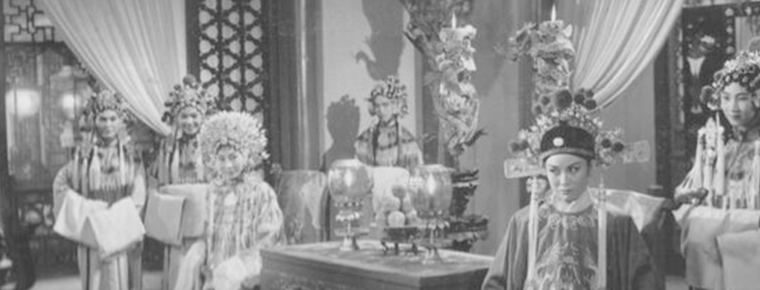
-
Wa Palace Scenic Area Handan City
Wa Palace, located in Zhonghuangshan Mountain, Shexian County, Handan City, Hebei Province, covers an area of 5 square kilometers..
Views: 239 Time 2018-11-24 -
The Museum of the Imperial Palace of Manchukuo
The Museum of the Imperial Palace of “Manchukuo†is located in Guangfubei Road, Kuancheng District, Changchun City. It is a Palace Ruins Museum built on the site of the Puppet Manchu Palac.
Views: 230 Time 2018-12-05 -
Shanghai Oriental land
Located in Qingpu District, Shanghai, Oriental Green Boat is the only large park in Shanghai that integrates outreach training, youth social practice, team activities and leisure tourism. Near the sce.
Views: 190 Time 2018-12-20 -
Tianjin Dule Temple
Dule Temple, also known as the Great Buddha Temple, is located in Jizhou District, Tianjin, China. It is one of the three remaining temples of Liao Dynasty in China and one of the famous ancient build.
Views: 187 Time 2019-01-08 -
Huanshui Bay Hot Spring Resort
Huanshui Bay Hot Spring Tourist Area of Anyang City is located at the exit of Anlin Expressway in Anyang Hi-tech Development Zone, Henan Province, close to National Highway 107 and the west side of Be.
Views: 305 Time 2019-01-17 -
Tianjin Water Park
Tianjin Water Park, formerly known as Qinglongtan, as a scenic resort, can be traced back to the beginning of the last century. It was officially opened to tourists on July.
Views: 159 Time 2019-02-21 -
Ewenki Folk Songs
Ewenki folk songs are beautiful and beautiful, with unique style. People are improvised and sing improvised lyrics. Pastoral songs and hunting songs show the brave and simple.
Views: 282 Time 2019-04-28 -
Mongolian Chur
"Chuoer" is an ancient vertical wind instrument of Tuva people of Mongolian nationality in Xinjiang, which mainly distributes in Mongolian inhabited areas of Altay region. The Tuva people of.
Views: 86 Time 2019-06-03 -
Manufacturing Skills of Inside Lined 1000 Layer Cloth Shoes
Inline Shoe Shoe Shoe Shoe Shoe Shoe Shop was founded in 1853 in Xianfeng, Qing Dynasty. At first, it was specially designed for the royal family and officials at all levels t.
Views: 302 Time 2019-06-07 -
Ten times of music
Shifan music is a traditional instrumental music spread by Hakkas in Fuzhou and Western Fujian Province. It has been circulated since the middle of Daoguang in the Qing Dynasty. The origin of Shifan m.
Views: 307 Time 2019-06-15 -
Bowang mountain
Bo (B ó) Wang mountain, also known as Bowang mountain. Bowang mountain is one of the most important breeding and living places of the ancient Bo nationality. It was known as lunzhudadun and shitoudazhai in ancient times.
Views: 161 Time 2020-10-16 -
Geomorphological characteristics of Mianyang
The terrain is high in the north and low in the south, and the height difference is large. The northwest of Mianyang City is located in the eastern edge of the Qinghai Tibet Plateau, with high terrain and overlapping peaks. The southwest part belongs.
Views: 108 Time 2020-12-14
